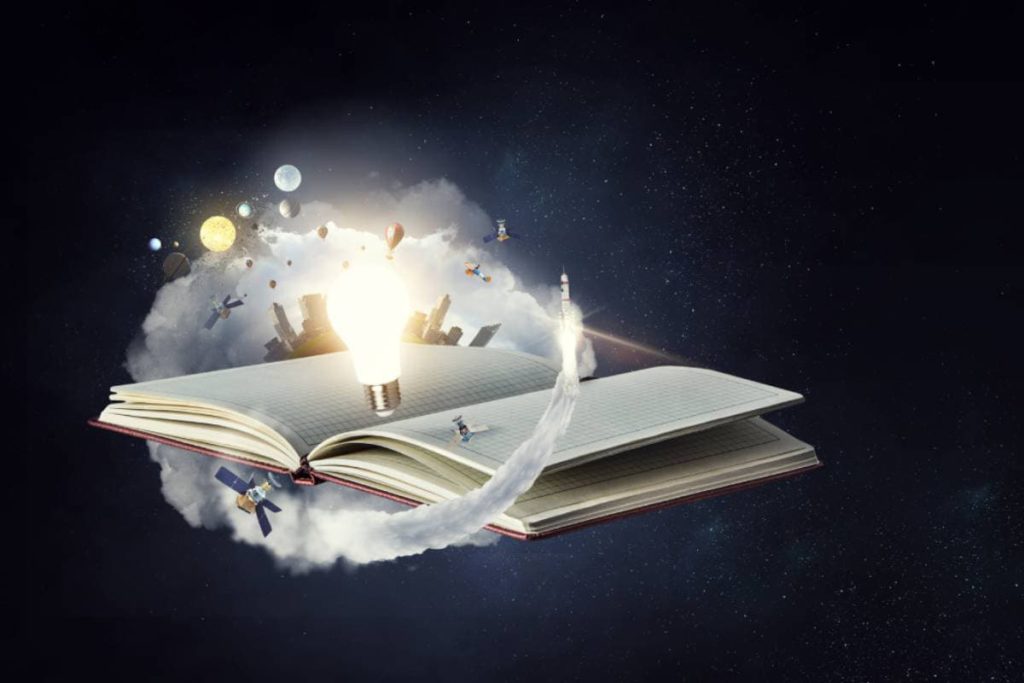Poetry is a unique form of writing, and sometimes people are unsure of how to classify it in terms of genre. Is poetry fiction or nonfiction? Here is what you need to know.
Poetry is not fiction or nonfiction but its own genre that focuses on rhythm and a certain number of syllables, lines, or stanzas. However, libraries categorize poetry as nonfiction. But, most poems are not based on true stories or events, which would make many people consider poetry fiction.
This article explains what fiction, nonfiction, and poetry are. Then we go over why poetry can be considered fiction and nonfiction and how the writing differs. Finally, we will go over what actually makes a poem a poem and why poetry is its own genre.

Defining Fiction, Nonfiction, and Poetry
Before we look at what genre poetry is and whether it is fiction or nonfiction, we need to define these two genres. First, here is the definition of fiction:
Fiction: the class of literature comprising works of imaginative narration, especially in prose form.
Fiction is a made-up story or other form of writing. If the story you are telling in your poem did not happen, it is fiction. The opposite of fiction is nonfiction. Here is the definition of nonfiction:
Nonfiction: the branch of literature comprising works of narrative prose dealing with or offering opinions or conjectures upon facts and reality, including biography, history, and the essay.
So, nonfiction is based on true events. If you have real-life experiences or facts in your poem, it is nonfiction work. So which genre is poetry?
Poetry actually has some similarities with fiction and nonfiction, and the genre depends on what you are writing about. If your poem is a true story, it is nonfiction. If you made it up, it is fiction. Or, you can have a mix of both if you have a true story but add in some parts that are made up.
But, poetry also has its own definition that is different from fiction and nonfiction. Here is the definition of poetry:
Poetry: the art of rhythmical composition, written or spoken, for exciting pleasure by beautiful, imaginative, or elevated thoughts.
Poetry is more about the rhyme and rhythm in which it is written and performed and less about how real the poem is. And while poetry can be a combination of fiction and nonfiction, some things make people consider poetry one of the two genres, and we look at these in the next two sections.
Fiction and Poetry
Now, let’s look at how fiction writing and poetry compare. Many people consider poetry fiction because a lot of poetry is made up of stories or emotions. It’s not often that people write poetry about historical events or other factual things that would make it be considered nonfiction.
So since most poetry is based on creative thinking and writing, it is considered fiction.
Even if you were to write a poem about a true story that happened to you but then changed some of the details or made it more colorful to include true events, it would be fiction. Classifying works like this as fiction is true whether or not it follows a genre of poetry or is just considered a piece of prose which is a fiction work.

Nonfiction and Poetry
Some poetry can also be considered nonfiction. If a work of poetry is written about true events, like a historical event or something that occurred in the writer’s life, many people would consider it nonfiction.
But, there are many other reasons poetry is considered nonfiction.
The primary reason that many people classify poetry as nonfiction is because that is how libraries classify poetry. There is an overwhelming amount of fiction writing out there, and it’s hard to classify a poetry book into one fiction genre, which is where most people would put it, as we explained in the section above.
So, as the Dewey Decimal system evolved with the increase of written works, poetry became its own section in the nonfiction classification.
Bookstores also tend to put poetry in the nonfiction section of the store for similar reasons. More fiction books are sold, and fiction books are classified by author and sub-genre. But, if a poetry book has multiple authors or covers multiple subgenres by the same author, it can be difficult to classify, then difficult for buyers and readers to find.
So, like libraries, bookstores keep all the poetry together in one area.
Poetry: Its Own Genre
You might think poetry is nonfiction, fiction, or maybe it’s flexible depending on the poem’s content. But, most people put poetry as its own genre because it possesses certain characteristics that fiction and nonfiction do not have or require.
Poetry highlights rhythm and rhyme. Instead of flowing sentence after sentence with paragraphs, poetry has shorter lines and stanzas that don’t have to follow traditional grammar rules.
Poets can use a mix of rhymes, syllables, stanzas, and line lengths to highlight certain parts of their poems.
And, poems tend to use more colorful language that makes the reader or audience feel like they are going through the story or emotions that the poet is trying to convey. When poets perform their work, they can make the rhymes and hard syllables even more apparent to convey their message and emotion.
Furthermore, poetry has several different types of poems. You can write a haiku, a sonnet, an ode, a limerick, or free verse. There are tons of other types of poems, and the kind you write depends on the number of lines and the rhyme scheme you use.
But, not all poems need to follow a pattern, which is called free verse poems.
Final Thoughts
Poetry is considered nonfiction by libraries because of how the Dewey Decimal system has evolved, but if you look at how factual most poems are, they would be considered nonfiction. While poetry can be fiction or nonfiction, depending on how you look at it, poetry is usually classified as its own genre as long as the rhythm, rhyming, and structure are there.

